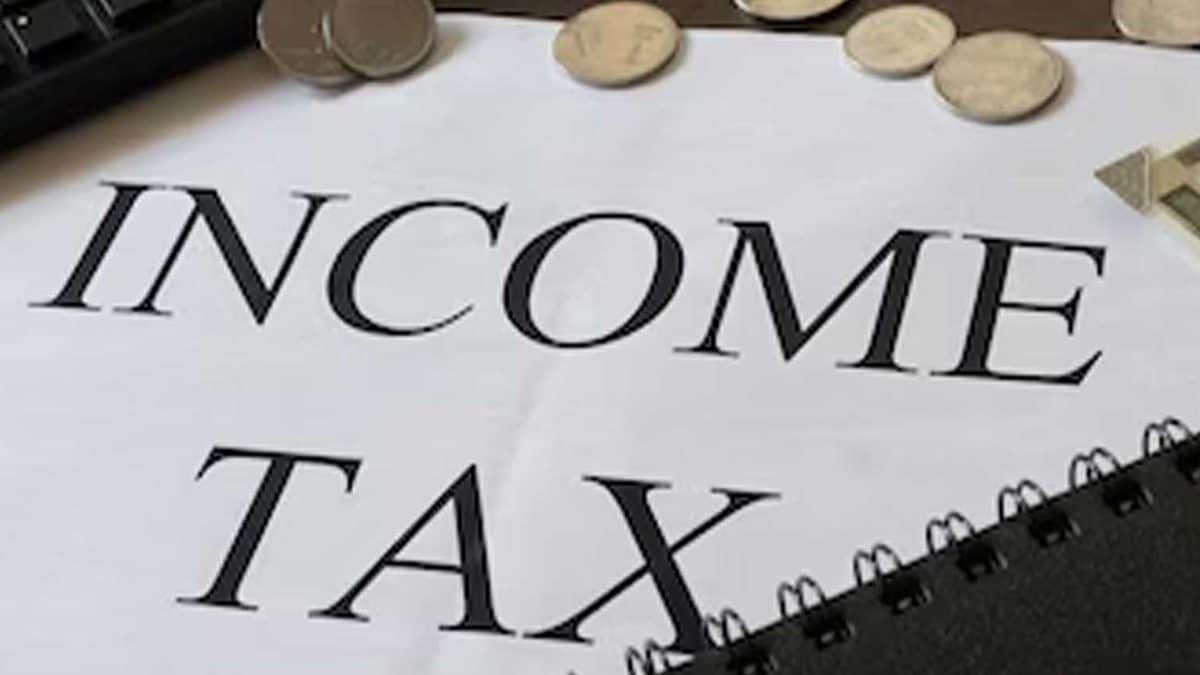Top Options To Save Income Tax Under Old Regime

The rebate for the resident individual under the new regime has been raised to Rs 7 lakh.
Income Tax: While presenting the Union Budget on February 1, finance minister Nirmala Sitharaman announced changes in the new regime of personal income tax.
In India, income tax is a tax levied by the central government on the income of individuals, Hindu Undivided Families (HUFs), companies, firms, associations of persons, body of individuals, etc..
While presenting the Union Budget on February 1, finance minister Nirmala Sitharaman announced changes in the new regime of personal income tax.
The rebate for the resident individual under the new regime has been raised to Rs 7 lakh.
Taxpayers with an annual income of up to Rs 7 lakh will save Rs 33,800 in taxes after the finance minister increased the rebate under the new income tax regime.
Standard deduction of Rs 50,000 to salaried individuals, and deduction from family pension up to Rs 15,000, is currently allowed only under the old regime. It is also proposed to allow these two deductions under the new regime.
However, experts feel that the old tax regime that comes with exemptions on certain investments and expenditures will remain attractive for taxpayers who pay house rent or have a home loan.
Here are the income tax slabs under old tax regime:
- In the old tax regime, there are seven tax slabs, with the liability going from NIL to 30 per cent of the income.
- People with an annual income of up to Rs 2.5 lakh are exempt from paying income tax.
- Those earning between Rs 2.5 and 5 lakh have to adhere to a tax rate of 5 percent.
- For people whose yearly income falls from Rs 5 lakh to 7.5 lakh, the income tax rate is at 10 percent of the total earnings.
- Individuals in this bracket have an annual income of Rs 7.5 to 10 lakh. The tax rate for them is 15 percent.
- For income ranging from Rs 10 to 12.5 lakh per year, the tax rate is 20 percent.
- Those earning between Rs 12.5 and 15 lakh have to follow a tax rate of 25 percent.
- For annual income exceeding Rs 15 lakh, the tax rate is 30 percent.
Under the new income tax regime, the number of slabs has been reduced.
- Those who earn up to Rs 3 lakh a month have to pay no income tax.
- Annual income ranging from Rs 3 to 6 lakh will invite a tax rate is 5 percent. However, tax rebate is applicable for income earned upto Rs 7 lakh, making it tax-exempt as well.
- Those earning between Rs 6 lakh and Rs 9 lakh a year have to follow a tax rate of 10 percent.
- The tax rate for a yearly income of Rs 9 lakh to Rs 12 lakh has been set at 15 percent.
- For the next tax bracket, which covers annual income of Rs 12 lakh to 15 lakh, the tax rate is 20 percent.
- The last tax slab covers all those whose yearly income exceeds Rs 15 lakh. They have a tax liability of 30 percent.
Experts suggest once you know how much tax you must pay, you must make a plan to reduce your tax liability by taking advantage of tax deductions allowed by the applicable provisions of the Income Tax Act.
Some tips by Vishal Raheja, MD, InvestoXpert.com;
-Invest in Tax Savings Opportunities -Investing in vehicles like the Public Provident Fund (PPF), Equity Linked Savings Scheme (ELSS), National Savings Certificate (NSC), Senior Citizen Savings Scheme (SCSS), etc. is the most obvious option to reduce taxes. These investments not only enable tax reduction but also wealth accumulation.
-Obtain Tax Deductions on Home Loans – If you have a home loan, you may be eligible for tax deductions for both the interest and principal payments made on the loan.
-Utilise Section 80C Benefits Several deductions from your taxable income are available under Section 80C of the Income Tax Act. Investments in PPF, ELSS, NSC, SCSS, life insurance premiums, and certain specified contributions to certain designated funds are among the most popular deductions under Section 80C.
-Benefit from Tax Deductions for Education Loans – If you have taken out an education loan, you may be eligible for tax deductions for both the interest paid and the principal repaid on the loan.
-Benefit from Tax Savings on Retirement Savings – You can benefit from tax breaks on both your contributions and the maturity proceeds if you make payments to a pension fund like the National Pension System (NPS).
-Benefit from Tax Deductions for Medical Insurance – The premiums for medical insurance policies are eligible for tax deductions.
Moreover, overhauling the income tax structure is expected to add more money in the hands of the middle-class taxpayers and positively impact spending capacity and savings.
Taxpayers must take the advice from a financial advisor according to their requirement and priorities.
Read all the Latest Business News here
For all the latest business News Click Here


